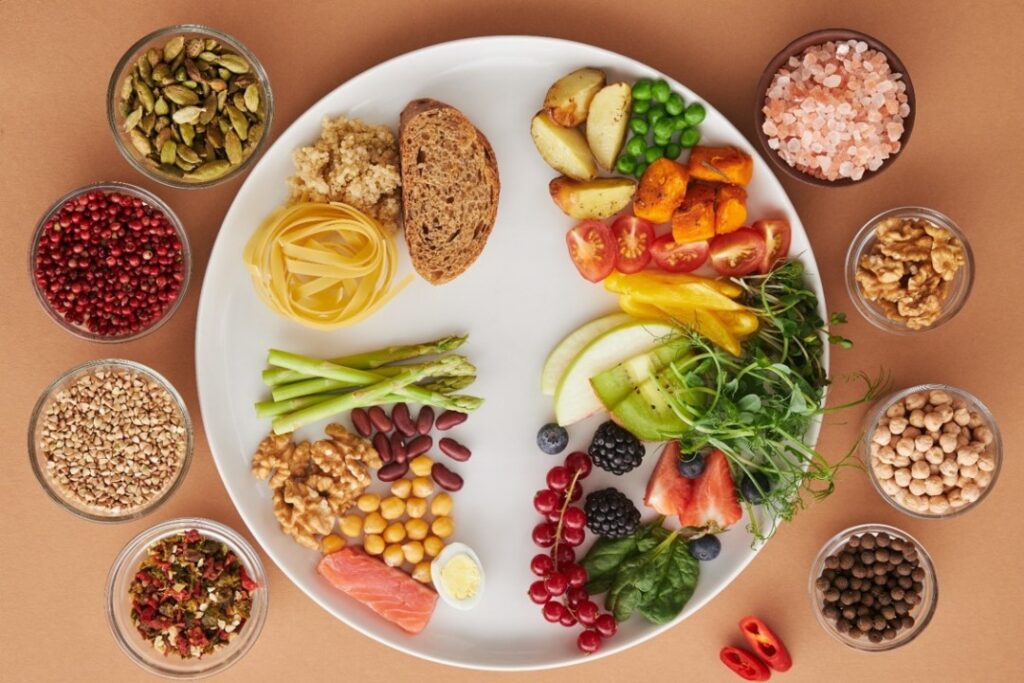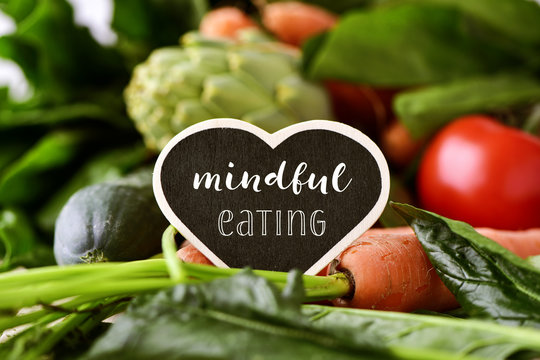Weight loss is more than just a goal for looking better—it plays a vital role in overall health and well-being. In a world where busy routines and unhealthy food choices are common, managing your weight can help prevent many serious health problems like heart disease, diabetes, high blood pressure, and joint pain. Keeping a healthy weight supports your body’s functions, boosts energy, improves sleep, and even helps with mood and confidence.
Losing weight doesn’t have to mean following strict diets or harsh routines. Instead, it’s about making simple, long-term changes to your eating habits, daily movement, and mindset. These positive changes can lead to steady progress and lasting results.
Understanding the importance of weight loss is the first step toward living a healthier and more active life. Whether you’re just getting started or continuing your journey, staying informed and motivated can help you make better choices and enjoy a better quality of life.
Why Weight Loss Matters: The Health Connection

Weight loss isn’t just about fitting into a smaller clothing size—it’s about improving your health and enhancing your overall well-being. Obesity and excess weight are linked to a wide range of health conditions, including:
Heart disease
Type 2 diabetes
High blood pressure
Sleep apnea
Certain cancers
Joint problems like osteoarthritis
Fatty liver disease
Mental health challenges like depression and anxiety
The Silent Toll of Extra Weight
Carrying too much weight puts extra stress on your organs and joints, especially your knees, hips, and back. This strain can lead to pain and limit daily movement over time.
Fat stored around your belly, known as visceral fat, is more than just stored energy—it can cause inflammation and affect hormones. This creates problems inside the body that aren’t always visible at first.
These changes can lead to insulin resistance, high cholesterol, and spikes in blood sugar. That’s why following smart weight loss tips can help protect your health and prevent long-term complications before they start.
Mental and Emotional Benefits of Weight Loss
Losing weight not only changes your appearance but also boosts your mental and emotional well-being. It can increase confidence, reduce stress, and improve self-esteem. Feeling healthier and more in control often leads to a more positive outlook on life, making weight loss a powerful step toward overall wellness.

Many people report experiencing:
Greater confidence and self-esteem
Improved mood
Reduced stress and anxiety
Better sleep quality
More motivation and focus
Top 8 Effective and Attractive Weight Loss Tips
Let’s dive into the most effective, science-backed, and practical weight loss Tips that can help you not only lose weight but also maintain it long-term. These tips are not about quick fixes or extreme diets—they are sustainable lifestyle habits that work.
Set Realistic and Specific Goals
Setting goals is one of the most important steps in a successful weight loss journey. But it’s not just about saying you want to lose weight—it’s about creating clear and realistic goals you can stick to. When you set specific targets, like losing 5 kilos in two months or walking 30 minutes every day, it becomes easier to stay focused and motivated.
The key is to start small and build gradually. Avoid extreme plans that are hard to follow. Instead, use practical weight loss tips to guide your progress. Tracking your goals, celebrating small wins, and adjusting as needed can keep you moving forward. With smart planning, your goals become a map to long-term success.
How to Do It:
Instead of saying “I want to lose weight,” aim for something measurable:
“I want to lose 10 pounds in the next 8 weeks by exercising 5 times a week and cutting out soda.”
Break your main goal into smaller milestones to stay motivated.
Focus on process goals (e.g., walk 30 minutes daily) rather than only outcome goals.
Setting the right goals creates a clear path forward, increases motivation, and gives you something to celebrate as you progress.
Embrace a Balanced and Nutritious Diet

A common myth about losing weight is that you need to starve yourself. Many people believe eating less means faster results, but this often leads to weakness, cravings, and even weight gain later. Skipping meals can slow down your metabolism and harm your health over time.
The truth is, your body needs fuel to function well. The key is to eat the right foods in the right amounts. Focus on balanced meals, rich in nutrients, and avoid processed snacks. Simple weight loss tips like eating more vegetables, drinking water before meals, and choosing whole foods can help you stay full and lose weight in a healthy way. Nourishing your body wisely is what really brings lasting results.
Key Principles of a Weight Loss-Friendly Diet:
Eat more whole foods: Focus on fruits, vegetables, lean protein, whole grains, and healthy fats.
Avoid ultra-processed foods: These include chips, cookies, sugary cereals, and frozen ready-meals.
Control portions: Even healthy foods can lead to weight gain if eaten in large amounts.
Use the plate method: Half your plate should be vegetables, a quarter lean protein, and a quarter whole grains.
Bonus Tip: Meal prepping can help you stay on track and avoid impulsive, unhealthy choices.
Prioritize Protein at Every Meal
Protein plays a powerful role in any weight loss journey. It keeps you feeling full longer, which helps reduce hunger and stop unhealthy snacking. When you eat enough protein, you’re less likely to overeat, making it easier to stay on track with your goals.
Another benefit of protein is that it helps maintain muscle while you’re losing fat. This is important because strong muscles keep your metabolism active. One of the best weight loss tips is to include protein-rich foods like eggs, beans, lentils, and yogurt in your meals. Adding protein to every meal supports healthy weight loss and gives your body the strength it needs during the process.
Why Protein Matters:
Increases satiety (feeling full)
Stabilizes blood sugar levels
Boosts metabolism through the thermic effect of food (TEF)
Helps maintain lean muscle mass while losing fat
Best Sources of Protein:
Chicken, turkey, and lean beef
Eggs and Greek yogurt
Lentils, chickpeas, and beans
Tofu and tempeh
Fish and seafood
Aim for 20–30 grams of protein per meal to maximize these benefits.
Stay Hydrated and Drink Wisely

Hydration is often overlooked, but it plays a major role in successful weight loss. Drinking enough water helps your body digest food, burn fat, and remove waste more efficiently. Sometimes, thirst is mistaken for hunger, leading to unnecessary snacking or overeating. Staying hydrated can help control cravings and reduce overall calorie intake.
One of the easiest weight loss tips is to drink water before meals. This can help you feel full and prevent overeating. Also, replacing sugary drinks with water lowers calorie intake and supports better metabolism. Keeping a water bottle with you throughout the day is a simple habit that can lead to noticeable results over time.
Benefits of Staying Hydrated:
Helps control hunger (thirst is often mistaken for hunger)
Improves digestion and metabolism
Aids in flushing out toxins
Supports workout performance
Smart Drinking Tips:
Start your day with a glass of water
Drink water before meals to reduce appetite
Limit sugary drinks, sodas, and fruit juices
Replace high-calorie beverages with herbal teas or sparkling water
Pro Tip: Carry a reusable water bottle and set hourly reminders to drink water.
Move More with Daily Physical Activity
Exercise offers more than just calorie burning—it supports your whole body. Regular movement helps strengthen your heart, build muscles, and improve blood flow. It also helps reduce the risk of many diseases. Beyond physical benefits, exercise lifts your mood by releasing feel-good chemicals in the brain, helping reduce stress and anxiety.
For lasting results, combine physical activity with smart weight loss tips like healthy eating and portion control. You don’t need intense workouts; even daily walks, light stretching, or dancing can make a big difference. The key is consistency. When exercise becomes part of your routine, it not only supports weight loss but also improves your energy, sleep, and overall well-being.
Best Types of Exercise for Weight Loss:
Cardio: Walking, jogging, cycling, or swimming
Strength training: Builds muscle, which burns more calories at rest
HIIT (High-Intensity Interval Training): Efficient calorie-burning workouts in shorter time
Daily movement: Taking the stairs, parking farther away, doing household chores
You don’t have to spend hours in the gym. Even 30 minutes of moderate activity per day can make a significant difference.
Practice Mindful Eating

Mindful eating means paying full attention to your meals—how your food looks, smells, tastes, and how it makes you feel. It’s about eating slowly, noticing hunger and fullness signals, and avoiding distractions like phones or TV. This approach helps you enjoy your food more and prevents overeating.
Unlike strict diets, mindful eating is a lasting habit that supports healthy choices. One of the best weight loss tips is to eat with awareness and stop when you’re comfortably full, not stuffed. It builds a better relationship with food, reduces emotional eating, and makes meals more satisfying. Over time, this small mindset shift can lead to better digestion, improved health, and steady weight loss.
Why It Works:
Helps prevent overeating
Reduces emotional or stress-related eating
Improves digestion and satisfaction
Builds a better relationship with food
How to Eat Mindfully:
Eat slowly and chew thoroughly
Avoid distractions like TV or scrolling on your phone
Listen to hunger and fullness cues
Enjoy the taste, texture, and aroma of your food
This approach can help you reconnect with your body and make healthier choices without feeling deprived.
Get Enough Quality Sleep
Sleep is often a forgotten factor in weight loss, but it’s just as important as diet and exercise. A good night’s sleep helps regulate hunger hormones, reduces cravings, and improves your ability to make healthier food choices. When you’re well-rested, you’re less likely to reach for unhealthy snacks or overeat.
To maximize your weight loss efforts, try incorporating better sleep habits as part of your routine. One of the top weight loss tips is aiming for 7-9 hours of quality sleep each night. Creating a calming bedtime routine and limiting screen time before bed can help improve sleep quality. By prioritizing rest, your body can recover, and your metabolism stays in balance, making weight loss easier and more sustainable.
Sleep and Weight Loss Are Closely Connected:
Poor sleep increases cravings and appetite (especially for junk food)
Lack of sleep disrupts hunger hormones like leptin and ghrelin
Fatigue reduces your motivation to exercise and prepare healthy meals
Aim for 7 to 9 hours of quality sleep per night. Create a calming bedtime routine, keep your bedroom dark and cool, and avoid screens before sleeping.
Stay Consistent and Be Patient

Weight loss doesn’t always happen in a straight line. Some weeks you may see significant progress, while other weeks, the scale might not budge. This fluctuation is completely normal and part of the process. The important thing is to stay consistent, even when the results aren’t immediate.
One of the best weight loss tips is to focus on healthy habits rather than expecting quick fixes. By sticking with balanced meals, regular exercise, and good sleep, you’re setting the foundation for long-term success. Remember, it’s not about perfection—it’s about making small, sustainable changes that you can maintain over time. Consistency will bring the results you’re looking for.
Long-Term Mindset:
Understand that healthy weight loss is about 1–2 pounds per week
Avoid fad diets that promise instant results—they’re usually unsustainable
Track your progress with photos, measurements, or how your clothes fit—not just the scale
Celebrate small victories and stay motivated with non-scale goals
Remember: Even small changes, repeated over time, create powerful transformations.
Bonus Section: Weight Loss Myths to Avoid
❌ Myth: Carbs make you fat
✅ Truth: Excess calories lead to weight gain, not carbs alone. It’s important to choose the right types of carbs. Focus on whole-grain options like brown rice, oats, and quinoa, which provide essential nutrients and fiber. Avoid processed carbs like white bread and sugary snacks that can spike your blood sugar. Healthy carbs can be part of a balanced diet when consumed in the right portions. This is one of the key weight loss tips to remember.
❌ Myth: You have to exercise like crazy
✅ Truth: Nutrition plays a much bigger role in weight loss. While exercise is important for overall health and can help speed up the process, what you eat has the greatest impact on your weight. A balanced diet rich in fruits, vegetables, lean proteins, and healthy fats is crucial. Remember, exercise supports weight loss but is not a magic solution on its own.
❌ Myth: You must avoid all your favorite foods
✅ Truth: Moderation is the key. You don’t have to give up your favorite foods entirely. The trick is enjoying them in moderation and making healthier versions when possible. Indulging occasionally doesn’t have to derail your progress. Learning to control portion sizes and savoring your treats is an important part of sustainable weight loss, one of the essential weight loss tips.
❌ Myth: Skipping meals helps you lose weight
✅ Truth: Skipping meals can actually work against you. Skipping meals can lead to overeating later in the day as you feel hungrier. It also slows down your metabolism, making it harder to burn calories efficiently. Instead, aim to eat balanced meals throughout the day to maintain energy and avoid bingeing later.
Conclusion

In conclusion, achieving and maintaining a healthy weight is a journey that requires consistency, patience, and the right mindset. By understanding the importance of weight loss for both physical and mental well-being, you can make informed choices that support long-term health. Incorporating effective weight loss tips such as eating a balanced diet, staying active, getting enough sleep, and practicing mindful eating can lead to lasting results.
Remember, small daily habits build the foundation for significant change. There’s no one-size-fits-all approach, but by staying committed and listening to your body, you can find what works best for you. These weight loss tips are not just strategies—they are tools for building a healthier, happier life. Start today, and take one step closer to becoming the best version of yourself.
FAQs
- What are the best weight loss tips for beginners ?
Start with small, achievable goals. Focus on balanced meals, regular exercise, and adequate sleep. Stay hydrated and practice mindful eating to avoid overeating. Tracking your progress can also keep you motivated. - How can I avoid overeating during my weight loss journey ?
One of the best weight loss tips is to eat smaller meals more frequently throughout the day. Include protein and fiber in each meal to stay full longer, and drink water before meals to help control hunger. - Can I still enjoy treats while trying to lose weight ?
Yes! Moderation is key. Occasionally enjoying your favorite foods won’t derail your progress. Focus on portion control and balance. It’s important to include treats mindfully as part of your overall healthy eating plan. - How important is exercise for weight loss ?
Exercise supports weight loss by helping burn calories and strengthen muscles, but nutrition plays a bigger role. Combining regular physical activity with healthy eating is one of the most effective weight loss tips. - What’s the role of sleep in weight loss ?
Sleep is essential for weight loss. Poor sleep can disrupt hunger hormones, leading to increased cravings and overeating. Getting enough quality sleep is one of the most important weight loss tips to keep your metabolism balanced and support your weight loss goals.
